Husband-Wife Duo is Challenging Rote Learning With Interactive Kits in 1,200 Schools
The couple is convinced that children can be set up for success in the long run simply by changing the way they learn in their formative years.
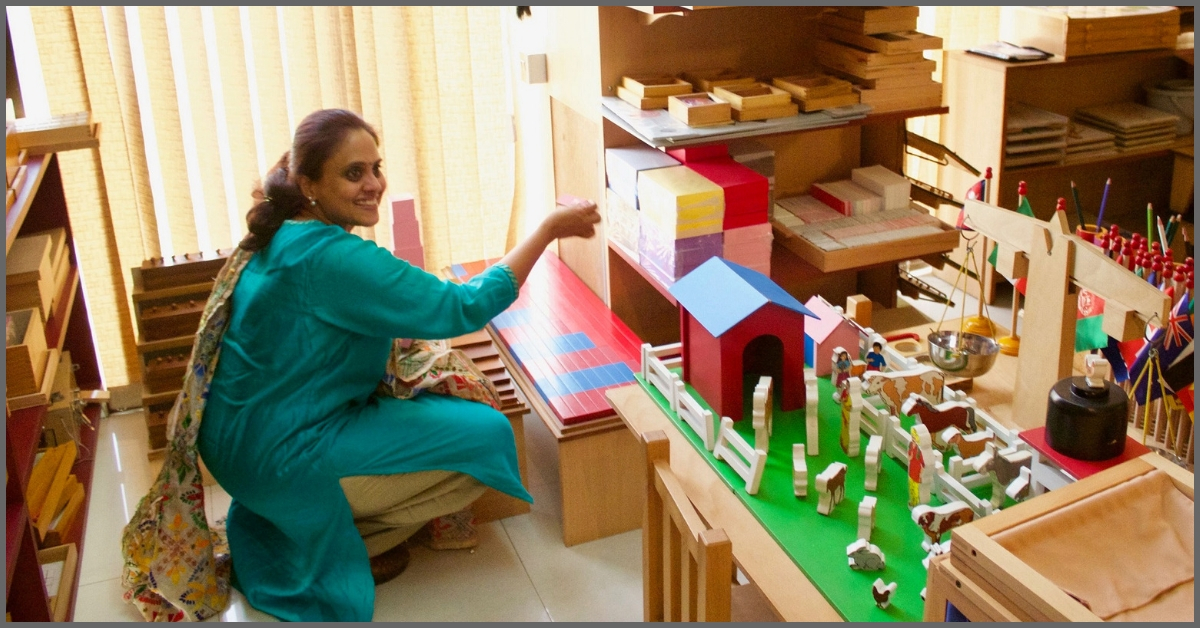
In the outskirts of Bengaluru, India, there is a series of buildings filled with puzzles, blocks, and games made of brightly-painted wood. These are not toys but tools and materials, that, when combined with the right curriculum, can help students learn by encouraging problem-solving, creativity, and collaboration as they master basic skills.
Amid an education world that is obsessed with technology and software-based learning, Kreedo Early Childhood Solutions’ hardware focus may seem old school. But Mridula Shridher and V K Manikandan (Mani), the husband and wife team who co-founded Kreedo, have seen how their model works.
The couple is convinced that children can be set up for success in the long run simply by changing the way they learn in their formative years.
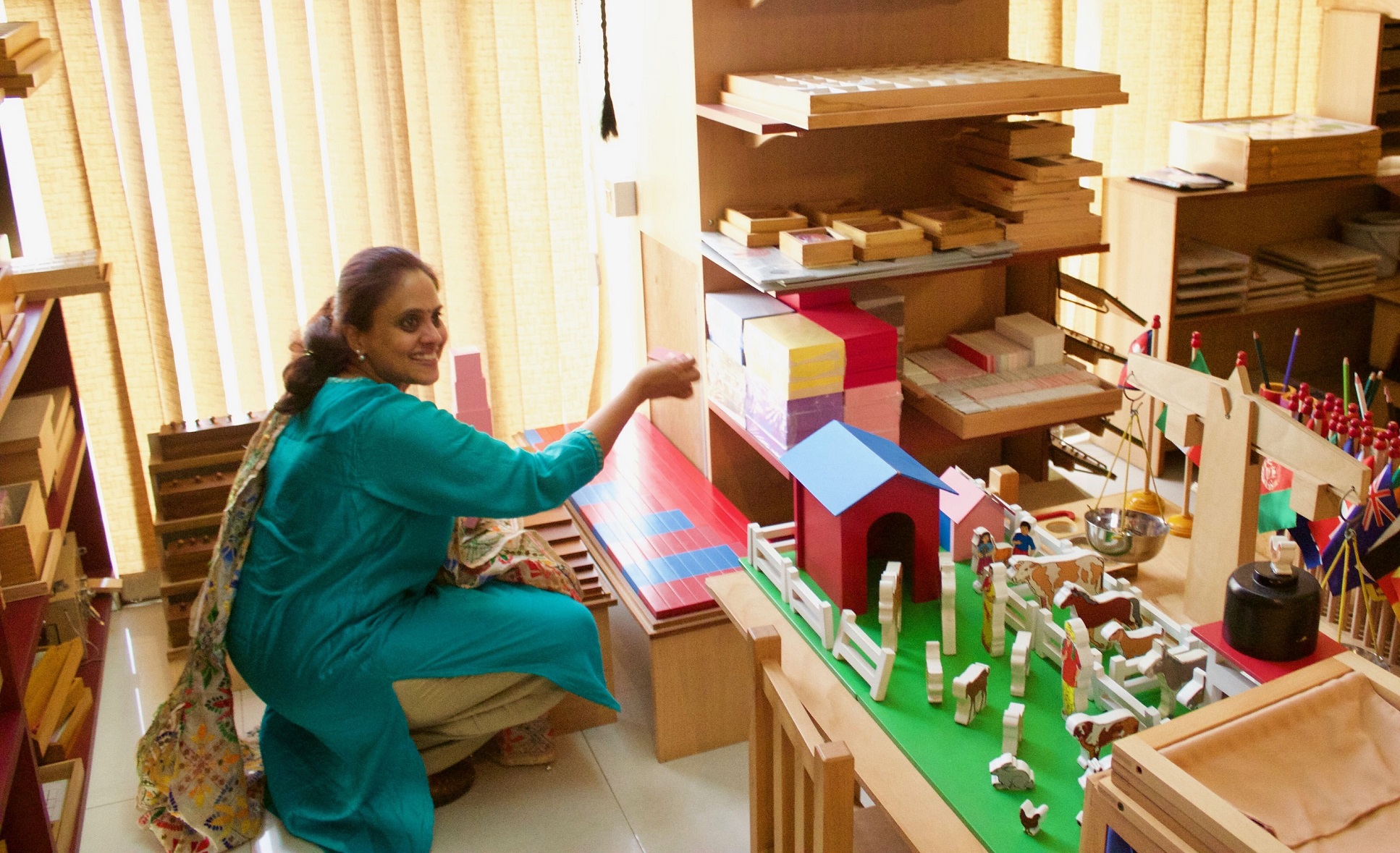
Most schools in India rely on colonial-era teaching methods, which focus on rote memorisation instead of true learning. Kreedo works to flip the script—to put learning in the hands of students as they take the lead in choosing their work in a collaborative environment.
Kreedo’s approach is based on the Montessori Method, which claims better learning outcomes than traditional classroom settings. It takes these principles and adapts them to the Indian context, where classrooms are often overcrowded, with students outnumbering teachers nearly forty to one.
Mridula and Mani initially focused Kreedo’s materials and curricula in the pre-school years, which they see as critical for a child’s overall development.
But in 2016, a group from FSG Advisors, a mission-driven consulting firm, saw their potential to make inroads in affordable private schools. This group approached the couple, encouraging them to adapt Kreedo’s curricula for primary school children enrolled in affordable private schools and on boarded Kreedo into FSG’s Program to Improve Private Early Education (PIPE).
Now, the team at Kreedo hopes to improve education in India’s private schools.
The original business, Kido Enterprises, was born at the home of Mridula’s mother, Geetha Sridhar. According to Mridula, Geetha was looking for something productive to do with her spare time so she could help support her family during a difficult period. So she created a variety of high-quality materials to sell to educators. Demand for these materials grew quickly, and so did her business, enabling her to start a factory that created dozens of local jobs.
When Mridula and Mani officially took over the business in 2004, the transition wasn’t easy. A fire swept through the factory, destroying everything. But starting over also created new opportunities.
They had noticed that many teachers who were purchasing their products were doing so in an ad hoc way, without any intent to incorporate the materials into any learning curriculum.
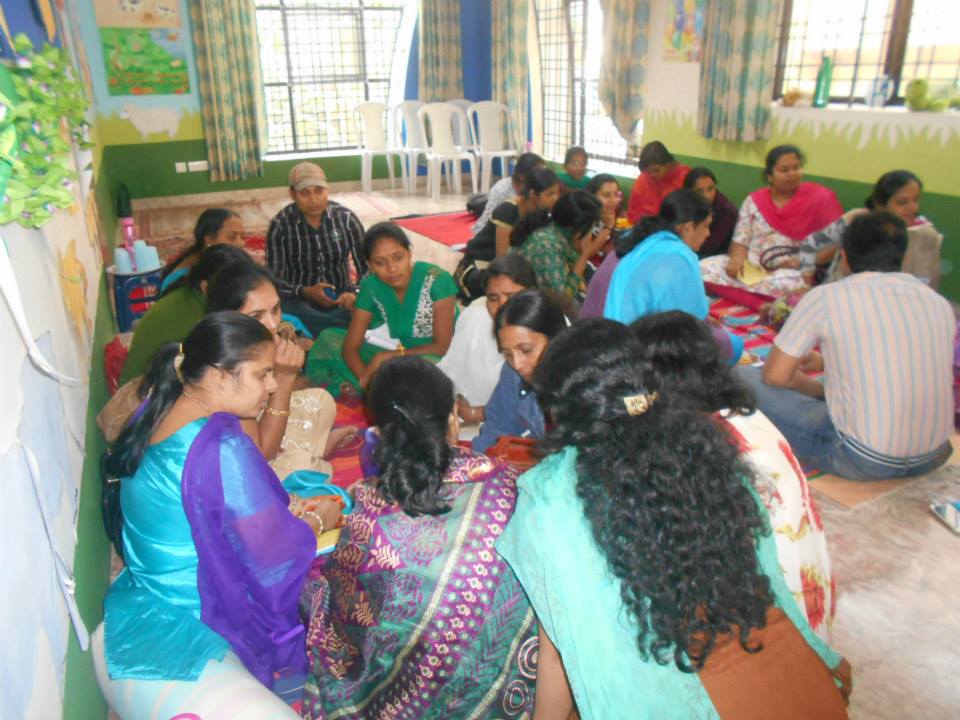
Also, in 2009, the couple was dealing with their own challenges. Their youngest child was diagnosed with Down syndrome, which at the time, meant he would have limited options for schooling. So they embarked on a journey of creating curricula based on the best education and child development research they could find.
In 2012, they officially launched Kreedo Early Childhood Solutions out of Kido Enterprises. It provides teacher training, materials, and more—all packaged in this pre-school startup kit. But the schools are independently run, instead of based on a franchise model.
In essence, Kreedo creates startup kits for independent pre-schools with a standardised curriculum and teacher training. This is done at a minimal cost to the company. There is brand association because the schools are “powered by Kreedo”, but it is up to them to maintain and run the school. And ultimately, “When an entrepreneur is driving the show—they work toward higher learning outcomes,” Mridula says.
More than 1,200 Montessori institutions and preschools throughout India now use Kreedo in their core curriculum.
The company currently employs 50 people in its offices in Bengaluru, and more than 300 in their factory, nearly 60 per cent of whom are women.
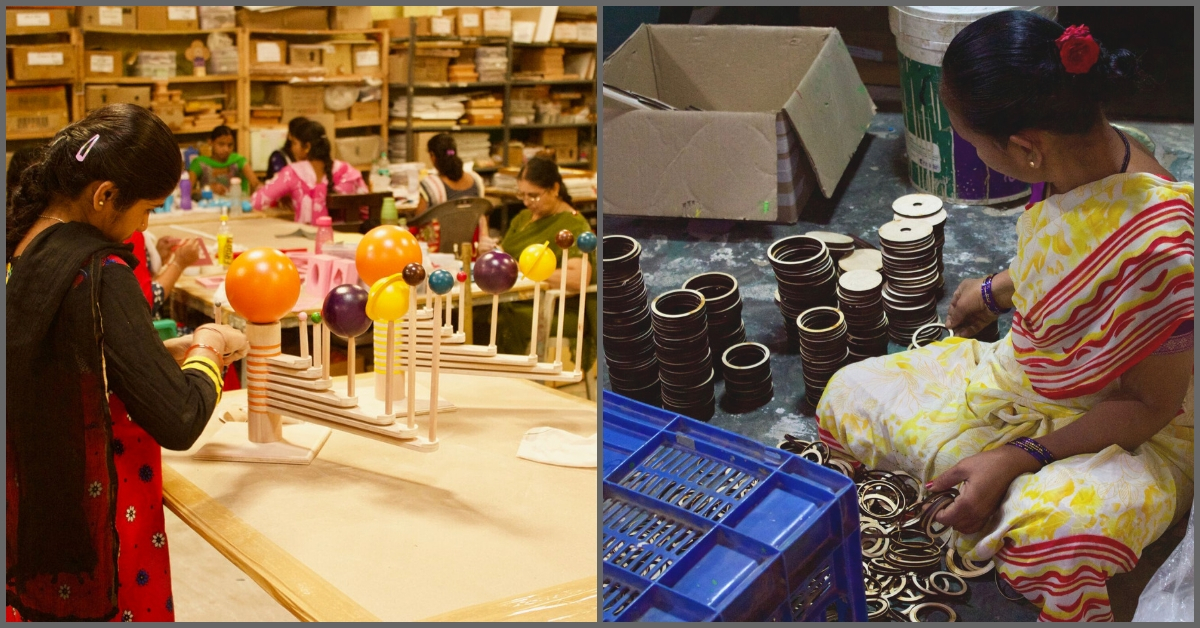
A growing body of evidence suggests that activity-based learning for young children gives them a solid foundation in reading, writing, basic math, and social-emotional skills, which positions them to learn other subjects more quickly. This approach is also more inclusive because students direct their own learning at their own pace, but help is still nearby when they need it.
When FSG Advisors first encouraged the couple to think about adapting their product for affordable private schools, they were hesitant. They had found their niche in pre-schools, and hadn’t initially intended to move beyond that. Besides, the canvas of affordable private schools canvas seemed too big and chaotic to break into.
But the FSG team helped them develop a business plan and learn how to approach these schools.
And soon, they realised that their materials and curricula were perfect for creating a more enriching learning environment for students while also taking pressure off teachers in overcrowded classrooms.
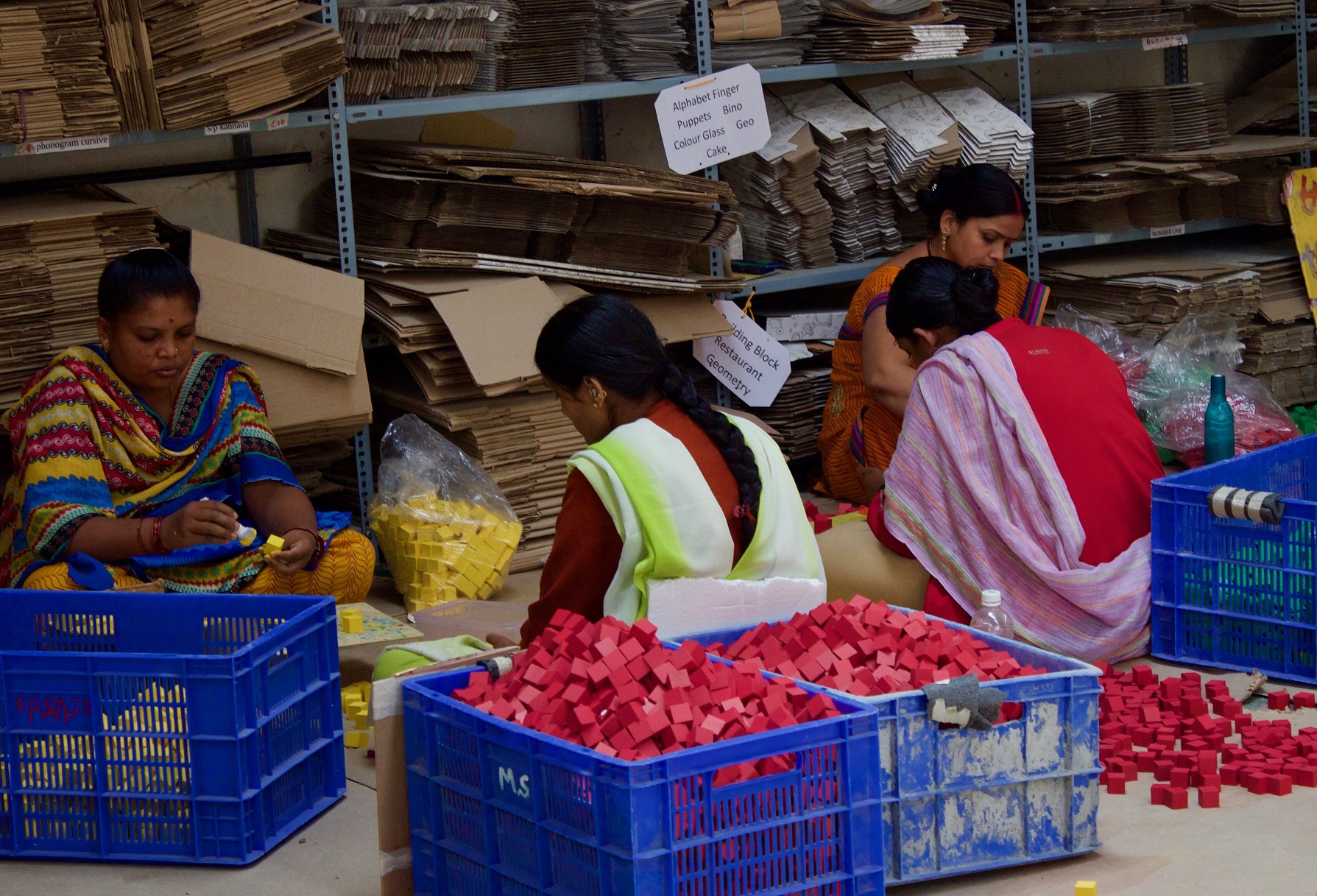
However, pitching to private school leaders requires a different approach and a longer timeline than Kreedo’s founders had initially expected. The team is also working hard to track their learning outcomes more effectively as they implement their solutions in 35 affordable private schools, at the primary level. They hope to expand to 300 schools in the coming academic year.
In addition to having to learn, understand, and pitch to an entirely different set of customers, raising investment capital is also a challenge for the Kreedo team. Historically, they’ve been self-funded and grown through sales revenue.
Now, as they seek to scale up their affordable private school solutions, they encounter many investors who have been burned by education investments in the past. And they say that investors who are still interested in that area are drawn mostly to tech-based solutions, or specifically seek out social enterprises.
This draws attention to the larger challenges that a lot of businesses face when trying to raise investment capital. When a company like Kreedo has a proven track record of growing its business based on revenue, but doesn’t fit the flashy mould of the tech startup scene, it can be difficult to find the right capital at the right time.
Research from the Global Accelerator Learning Initiative (GALI), collaboration between the Aspen Network of Development Entrepreneurs (ANDE) and Emory University, has found mismatches between investor and entrepreneur expectations and needs. Many ANDE members, like FSG, recognise the challenges that these entrepreneurs face and work with them to help them succeed.
And they are just one part of a complex ecosystem of support for entrepreneurs like Mridula and Mani.
While technology can be a wonderful tool if people are trained well, it’s not a silver bullet. Learning by doing is an important part of a child’s development.
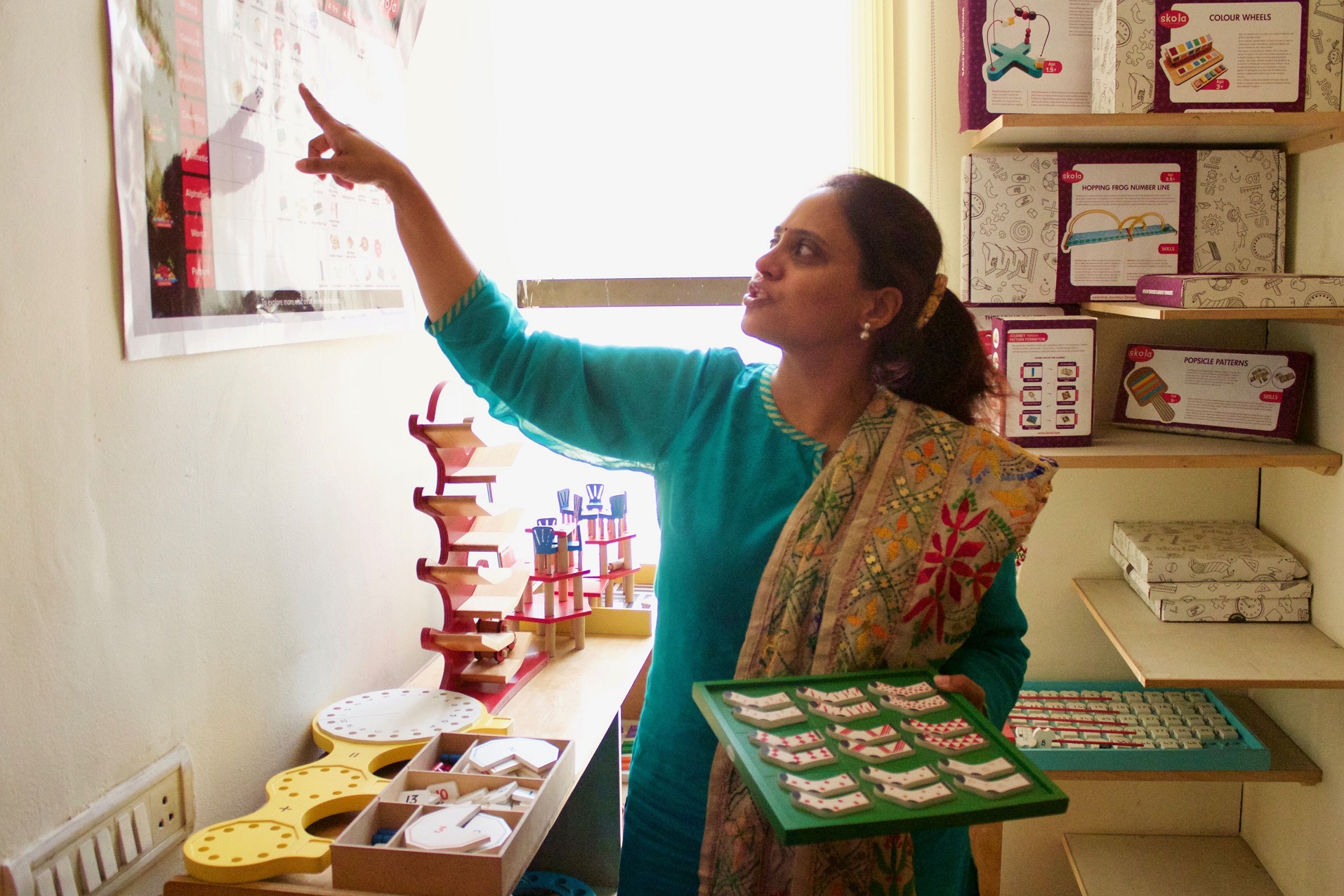
While tech can assist and complement that type of learning, tech can’t replace it. Especially during the early years, in low-resource settings, where people may not have consistent access to electricity, and where it might be difficult to fix broken tablets for instance.
However, innovation doesn’t have to mean tech first. Mridula and Mani like to think that they’re turning the traditional educational model on its head by teaching theory through practice, instead of teaching theory first and then practice.
With Kreedo’s model, children learn how something works, and then learn why it works that way. It helps them successfully apply that theory to other activities.
Also Read: Want Your Kid to Learn While Watching TV? This Startup Switches Ads With Educational Content!
While the road ahead is not easy, the co-founders take heart because they know they’re making a difference. They’ve seen how their model helps kids learn more effectively, and they hope to give every child, regardless of circumstances, the chance to learn. They’re proud of what they’ve made—products for Indians, by Indians, to make a better India.
“A child is a child,” Mridula says. “They deserve the same education, no matter where they come from.”
(Written by Stephanie Buck on behalf of the Aspen Network of Development Entrepreneurs and edited by Shruti Singhal)
Like this story? Or have something to share?
Write to us: [email protected]
Connect with us on Facebook and Twitter.

Similar Story

Bengaluru’s Rain Nightmare: ‘Zenrainman’ Shares 6 Ways to Stop Floods from Repeating
S Vishwanath, a civil engineer and urban-regional planner with over three decades of experience in the water and sanitation sector explains what Bengaluru must do to prevent flooding and water-logging.
Read more >
If you found our stories insightful, informative, or even just enjoyable, we invite you to consider making a voluntary payment to support the work we do at The Better India. Your contribution helps us continue producing quality content that educates, inspires, and drives positive change.
Choose one of the payment options below for your contribution-
By paying for the stories you value, you directly contribute to sustaining our efforts focused on making a difference in the world. Together, let's ensure that impactful stories continue to be told and shared, enriching lives and communities alike.
Thank you for your support. Here are some frequently asked questions you might find helpful to know why you are contributing?


This story made me
-
97
-
121
-
89
-
167












